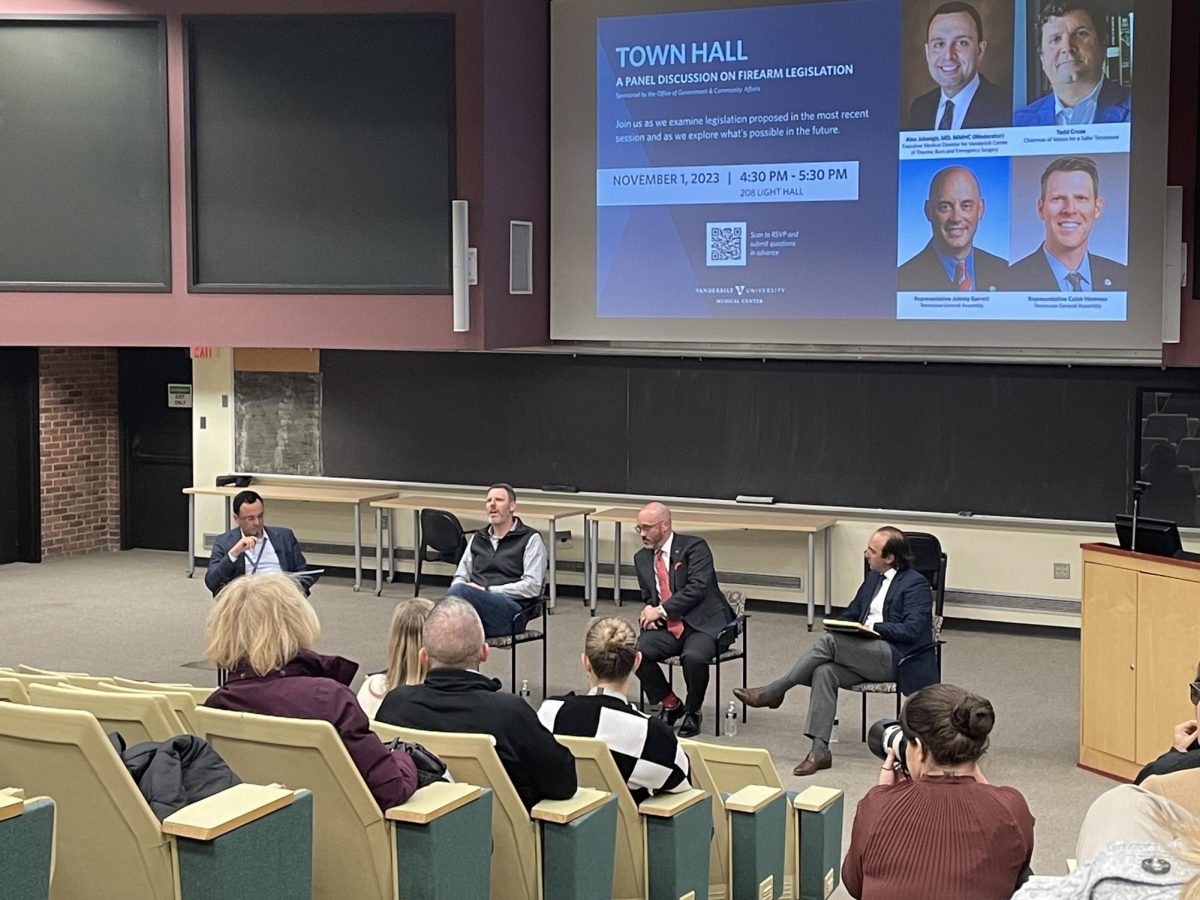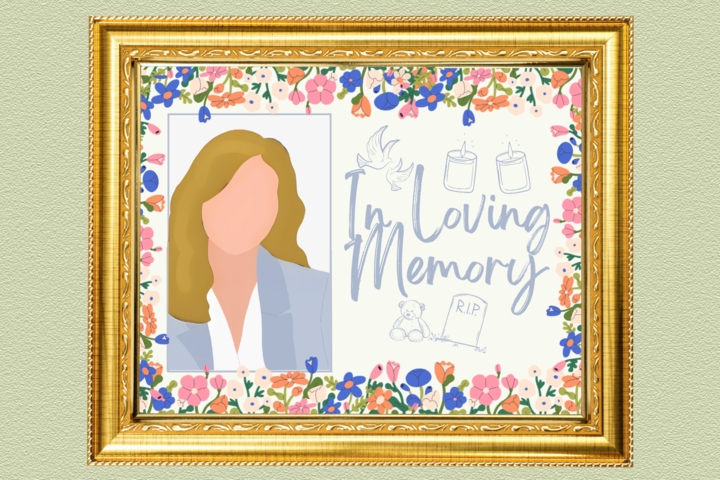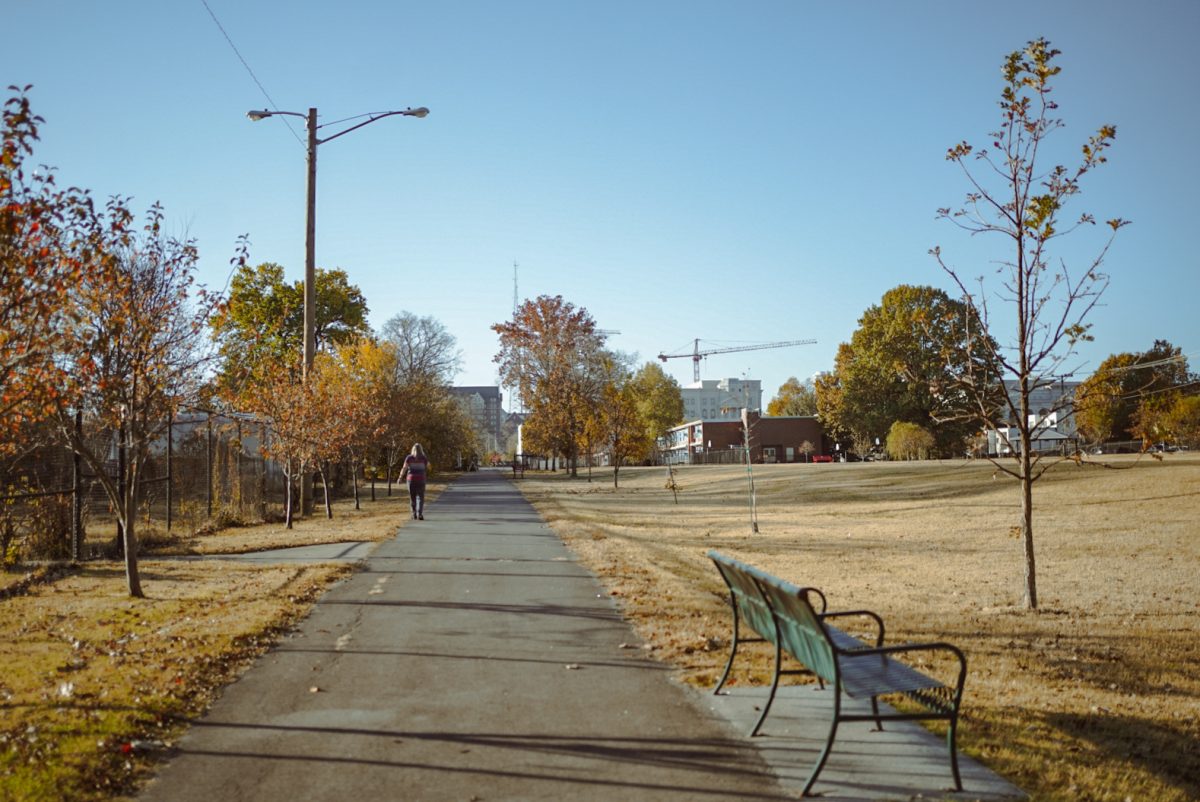Vanderbilt University Medical Center hosted a Nov. 1 town hall discussion on firearm legislation featuring Reps. Johnny Garrett (R-Tenn.) and Caleb Hemmer (D-Tenn.) alongside Jeremy Nagoshiner, member of the board of directors for Voices for a Safer Tennessee. The event is the first in a series of town halls on various issues pertinent to the VUMC community.
Matthew Scanlan, Vice President of VUMC’s Office of Government and Community Affairs, opened the event by explaining its purpose — to provide members of the VUMC community with an opportunity to engage with policymakers. The town hall was moderated by Dr. Alex Jahangir, the Medical Director of VUMC’s Center for Trauma, Burn and Emergency Surgery. Jahangir began the discussion by reflecting on recent gun violence in Nashville and Tennessee.
“Monday, March 27, in Nashville was forever changed in a lot of people’s minds with six people, including three nine-year-olds, dying at the mass shooting at Covenant,” Jahangir said. “Many of us in this room, though, have dealt with the 2018 Waffle House shooting and 2017 shooting at an Antioch church. But everyday, gun violence impacts a lot of people who work at this medical center.”
According to the Sycamore Institute, gunfire was the 10th leading cause of death in Tennessee in 2021, ranking the state 11th in the nation for highest per capita gun-related deaths. Jahangir also referenced statistics surrounding the national gun crisis, citing a 45% increase in gun-related deaths from 2012 to 2022.
In his opening remarks, Nagoshiner, a self-identified Republican, emphasized the importance of bipartisan conversation and pragmatism.
“We need to listen to each other. We’re not going to solve this problem with one proposal or two proposals. And then the proposals that we hear talked about are proposals that, quite frankly, we’re not going to pass in Tennessee,” Nagoshiner said.
Reflections on public safety special session
Jahangir asked Garrett and Hemmer to speak on the successes and failures of the August 2023 special session convened by Gov. Bill Lee to enhance public safety. Garrett said the gun debate was “too political” at the time for productive conversation.
“The challenge for that session was: can the policy outweigh the politics?” Garrett said. “And in that setting, there was no chance for that to happen.”
Garrett criticized activists who he alleged were “shouting” and “calling [him] names,” explaining that such behaviors made him less inclined to engage with the issue.
“Automatically, that puts you in a posture of ‘why would I speak to that person when all they want to do is throw things at you or yell at you, and they’re not hearing?’” Garrett said.
Katey Parham, a senior who has been involved in advocacy at the Tennessee capitol, refuted Garrett’s allegations.
“I think it’s disrespectful of Rep. Garrett to one, spread misinformation that we were violent, that we were pushing and shoving. That never happened during the time I was there, and I’ve been there the whole special session and more,” Parham said. “Two, it disrespects the history of our city and the state where we have a history of civil disobedience in the Civil Rights movement. These nonviolent direct actions changed the world.”
Garrett said he viewed the conversation that resulted from the session as a benefit but also expressed doubt over the effectiveness of laws to prevent crime.
“There’s gonna be no laws that I could think of — and I wouldn’t think of any laws that Caleb could create — that’s going to stop a madman from committing a heinous crime. People don’t care what laws they break,” Garrett said. “We need to ask: ‘why are they [criminals] acting the way they are?’ I don’t know if removing that one object [guns] is going to solve all the problems.”
Hemmer echoed Garrett’s praise of the “serious conversations” afforded by the special session but acknowledged that those conversations were a “low bar” compared to what activists had advocated for. He cited common-sense gun policies such as background checks, Extreme Risk Protection Orders and secure storage as items that polls — including the Vanderbilt Poll — have shown as having bipartisan support and expressed dismay that not much was accomplished on gun reform.
“We had a special session on gun reform and public safety, but we didn’t do anything specifically on gun reform. We did a lot on mental health policy, some stuff on safety and creating grants and programs for schools, school resource officers, etc.,” Hemmer said.
Nagoshimer explained that policy proposals like stronger background checks have bipartisan support but described a ban on assault weapons as unrealistic.
“So I think we talk about things like that [background checks] where there’s already agreement — how can we make it better?” Nagoshimer said. “When we come in and we’re talking about big policy proposals that are a long way off, it makes it really hard to talk about things that may not be that far apart.”
Hemmer also pointed to a recent example of a mentally ill person who purchased an AR-15 and illegally entered various individuals’ backyards as evidence of the need for stronger red flag laws.
“You can’t say there’s not something wrong with the process when something like that situation happens,” Hemmer said. “That’s the sort of things we’re going to continue to discuss, continue to try to find common ground between parties, between individuals in different districts in order to have a safer community.”
Advice for activism and advocacy
Garrett noted the importance of avoiding “non-starter” topics in his advice for gun policy advocates.
“Banning assault weapons is probably not going to happen [in Tennessee]. A federal law would be needed — that kind of talking point is a non-starter for some folks,” Garrett said. “If you’re talking to someone to shift them from a position they’re in, you can’t start with a topic that they’re a non-starter on.”
Explaining his approach to civil discourse, Garrett said it is crucial to maintain relationships with those from the opposite side of the political spectrum.
“Regardless where I stand on my Republicanism or where you stand on your Democratism, the other guy might be right. If you don’t seek out a relationship other than having a one-way conversation — which is what I would call a protest — you’re not going to get beyond the talking points,” Garrett said.
Hemmer praised community members’ ongoing advocacy, referencing the 20,000 constituent-submitted comments to the state legislature in the wake of the Covenant shooting and the thousands of protestors who marched to the capitol in March.
“Seeing groups like Voices, Rise and Shine and Covenant Moms going out and talking to people in order to actually change hearts and minds is super powerful,” Hemmer said. “We want more people active, more people voting and more people talking to folks like ourselves that can get past the yelling in social media and have true conversations.”
Hemmer and Garrett recommended that advocates call their legislators directly as opposed to using form emails to improve the chances of their message being heard.
“If I got or Johnny got 50-100 calls on a single subject from constituents in our district, we would pay attention. That doesn’t happen that much,” Hemmer said.
Nagoshimer spoke to Jahangir’s question from his own experience as an advocate.
“As an advocate group, we need to find more ways to take things that they’ve already done and they’ve already loaded, and try to expand them,” Nagoshimer said. “But again, we’re coming from a place of pragmatism, knowing that we’re not going to fix any of these things overnight.”
Reactions to the panel
Maryam Abolfazli, the founder of Rise & Shine Tennessee, a civic engagement volunteer group, took issue with the panelists’ focus on advocate behavior and discussion norms throughout the discussion. She expressed a desire for more meaningful dialogue going forward.
“To act like that’s the issue, that activists or advocates or moms are being rude, that’s where there isn’t common ground, just felt really patronizing and also very basic. We want to get really into these issues, into the details of these bills, the details of this data and actually come up with solutions. To spend a majority of the time just telling people how to behave felt really, really condescending — almost like they don’t actually want to talk about the issues, almost like they want to distract from it,” Abolfazli said.
She emphasized that advocates, from her experience, have been working tirelessly to find common ground with their legislators but feels that their efforts are not being adequately received.
“As constituents and as Tennesseans, we want our lawmakers to meet us where we are intellectually and, in terms of curiosity, around real legislation to save our kids’ lives,” Abolfazli said.
Sara Blass, a VUMC employee, expressed frustration with the lack of legislators’ willingness to listen to expert medical opinion on the issue of gun-related deaths and policies that could beneficially intervene.
“As a healthcare provider who deals with victims of gun violence on a daily basis, it’s pretty infuriating to sit in front of our elected representatives and not have them listen to the experts on this — the people who hold the hands of people who have lost loved ones, who have had their lives irrevocably changed,” Blass said.
Parham called on legislators to listen to those beyond the scope of their constituency as well.
“As students who grew up doing lockdown drills and had rocks in our classrooms to break open windows, we are stakeholders in this conversation, but they don’t give us the respect or time of day,” Parham said. “I’ve been to multiple representatives’ offices where they said they only meet with constituents — it’s really hard to hear ‘have these conversations’ when they actively turn us away. What else is there to do except to protest?”



















